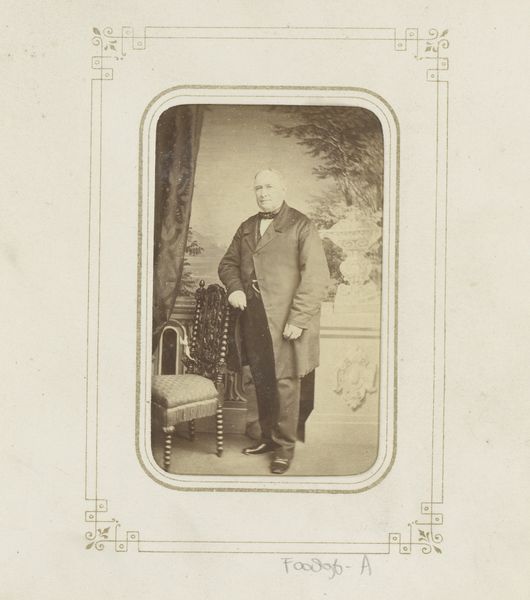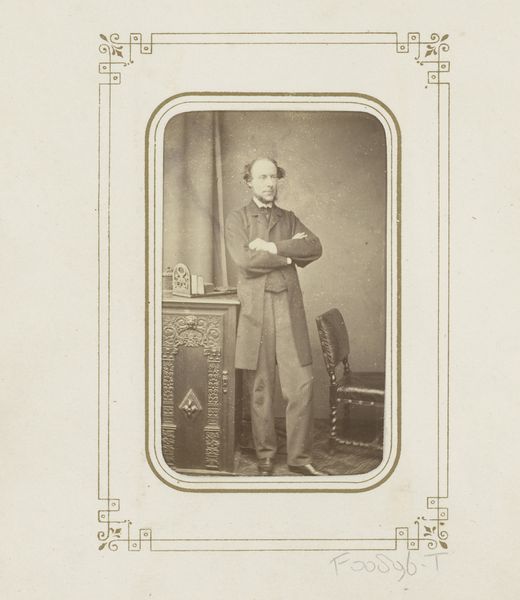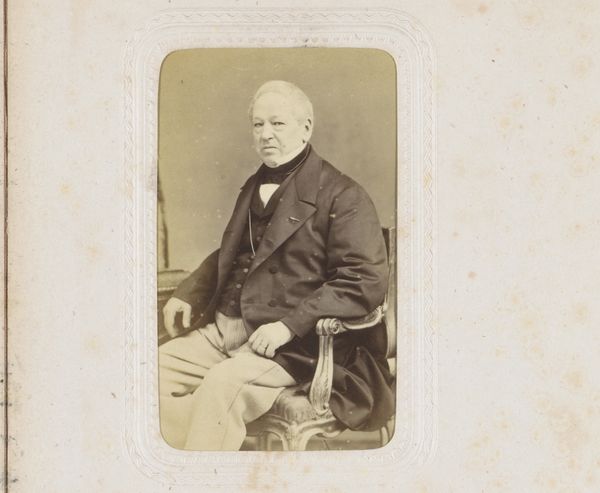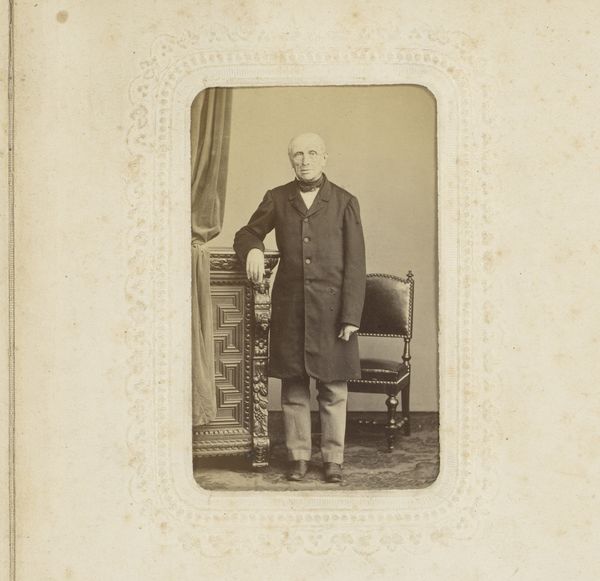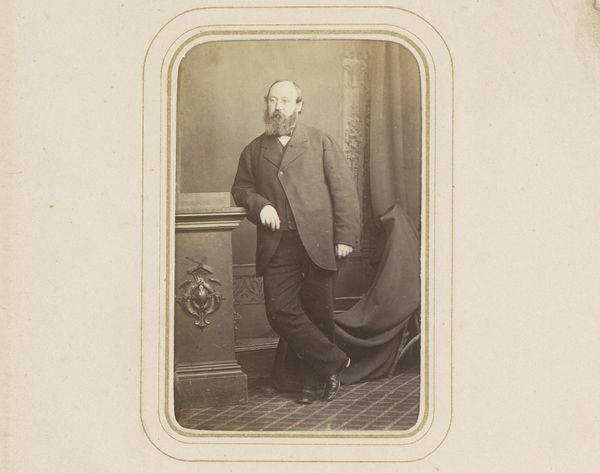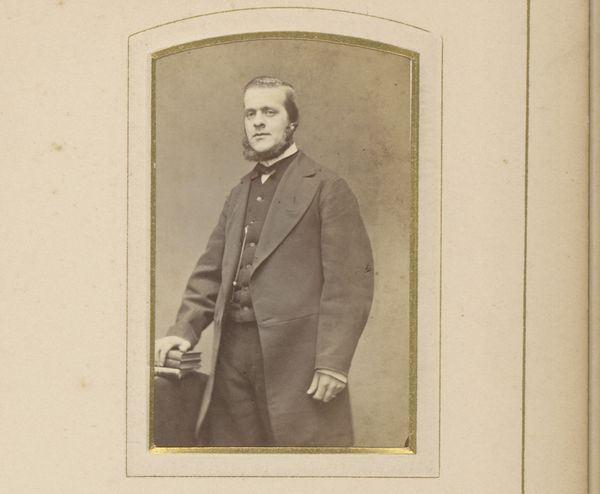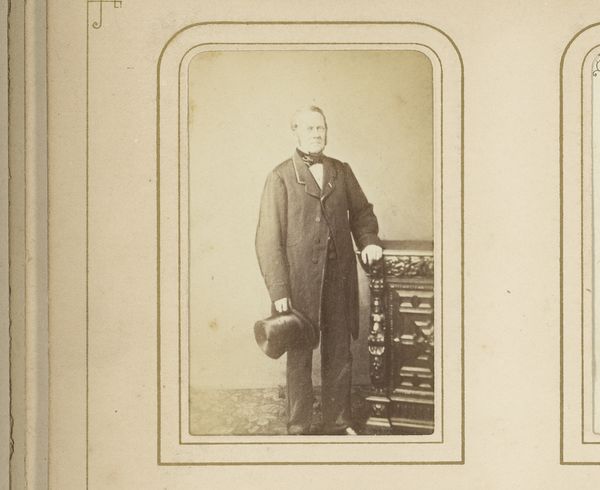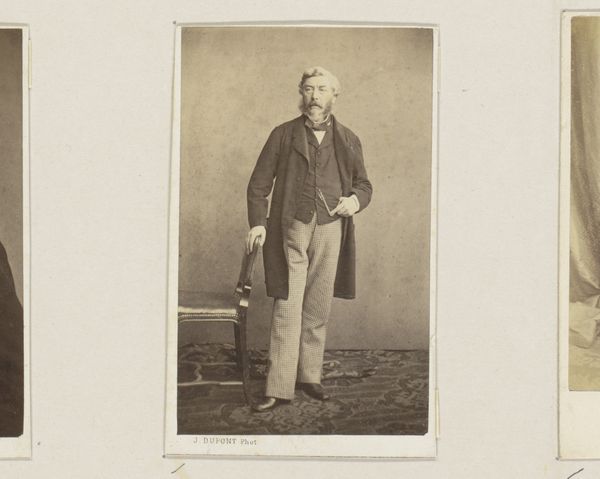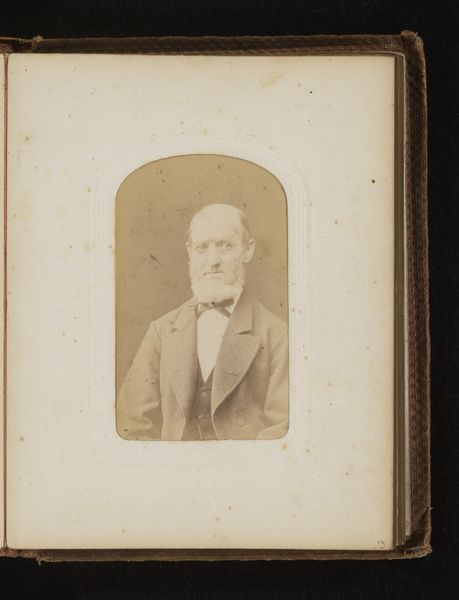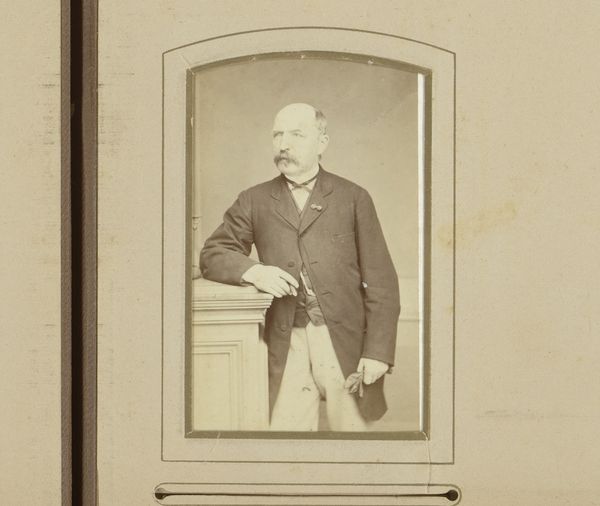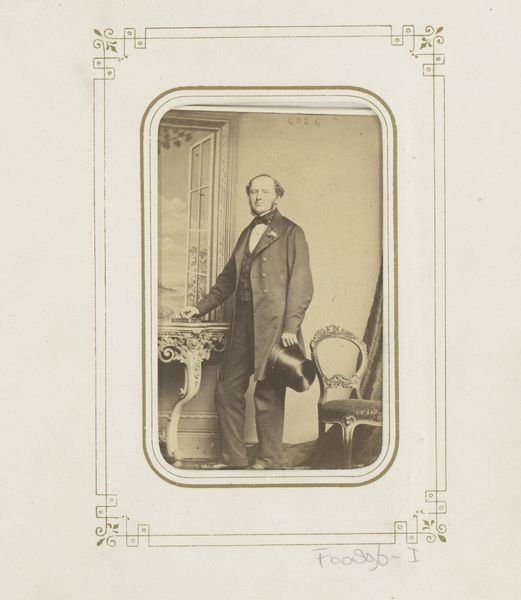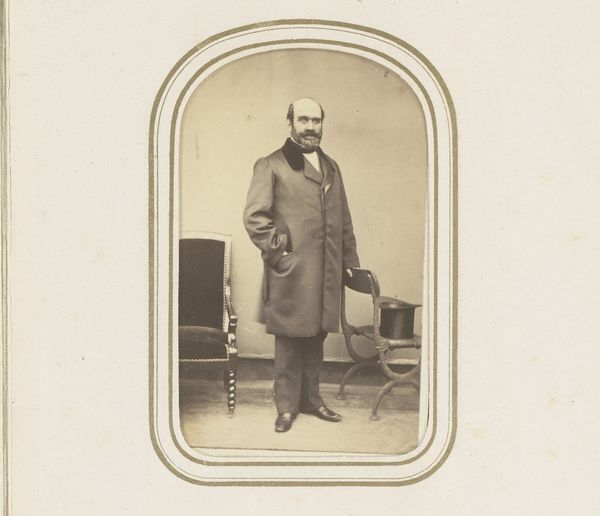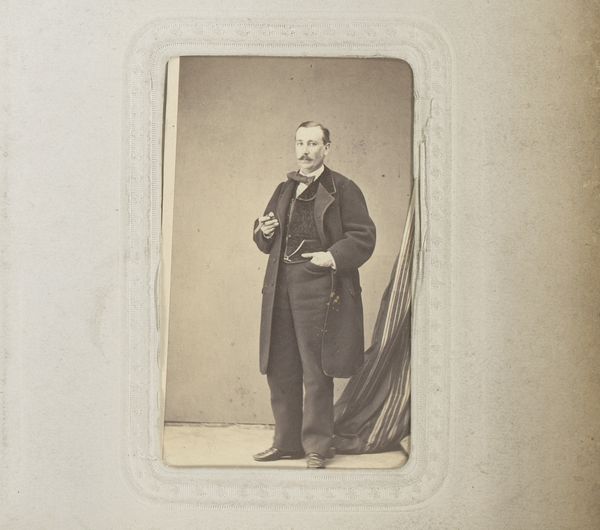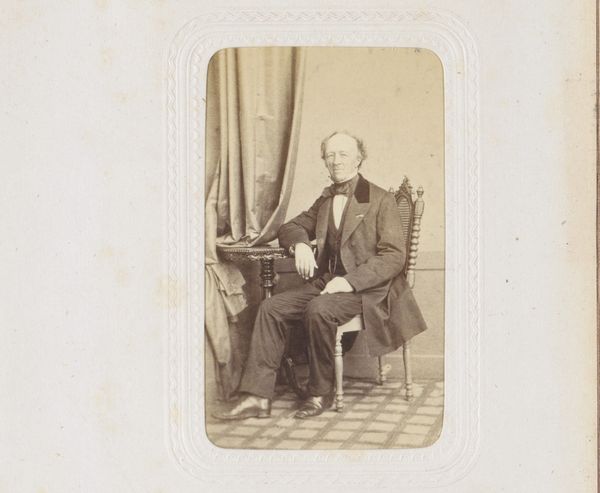
daguerreotype, photography
#
portrait
#
daguerreotype
#
photography
#
realism
Dimensions: height 86 mm, width 52 mm
Copyright: Rijks Museum: Open Domain
This man's portrait, captured by Establecimiento Fotografico, presents us with symbols of authority and status deeply embedded in the social fabric of its time. The hat and walking stick, quintessential accessories, are not merely functional items. Consider the scepter, a symbol of power held by rulers since antiquity. The walking stick echoes this, albeit in a more subdued form, projecting an image of command and respectability. The hat, too, signifies social standing, marking the wearer as a member of the bourgeoisie. We see this motif echoed throughout history, from the elaborate headdresses of ancient rulers to the crowns of medieval monarchs. These symbols tap into a collective memory, evoking feelings of awe, respect, and perhaps even a touch of fear. The formal attire, the upright posture, all contribute to this carefully constructed image of a man in control, a man of substance. It speaks to the subconscious desire for order and hierarchy. Yet, as these symbols recur, their meanings subtly shift. The scepter becomes a walking stick, the crown a hat. What was once divine right becomes social expectation. These objects, laden with history, continue their journey through time, evolving, adapting, and reminding us of the cyclical nature of power and status.
Comments
No comments
Be the first to comment and join the conversation on the ultimate creative platform.
